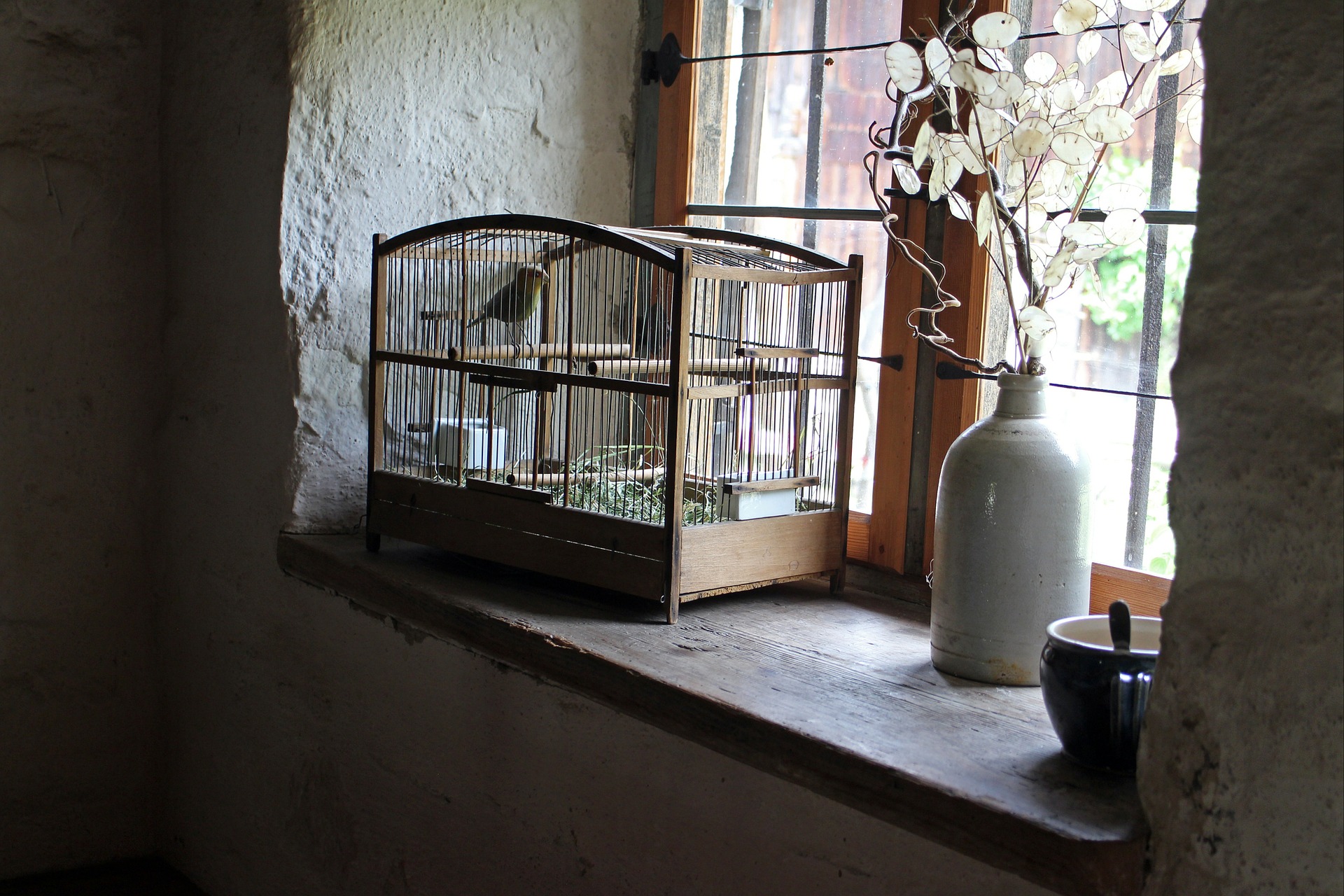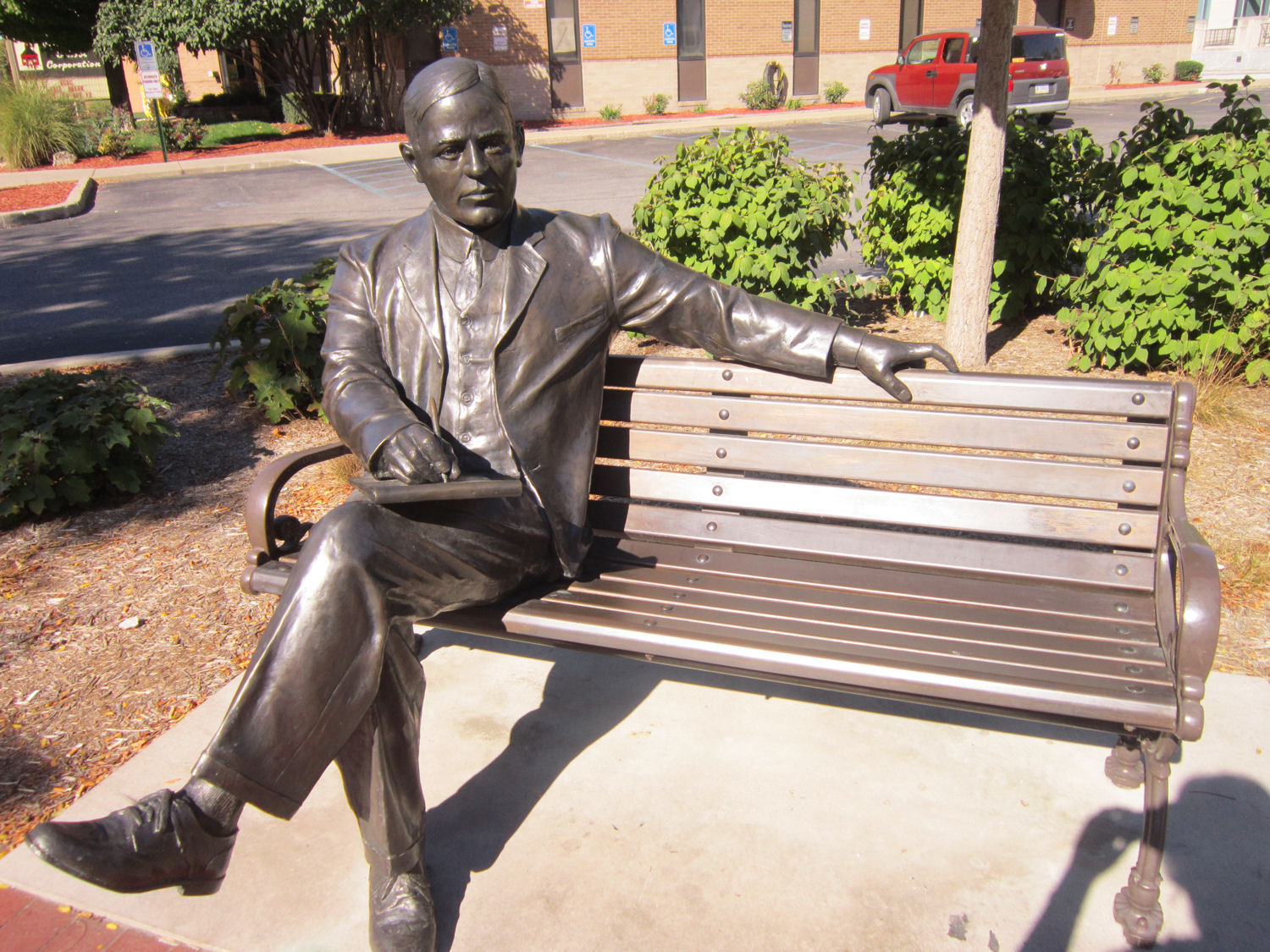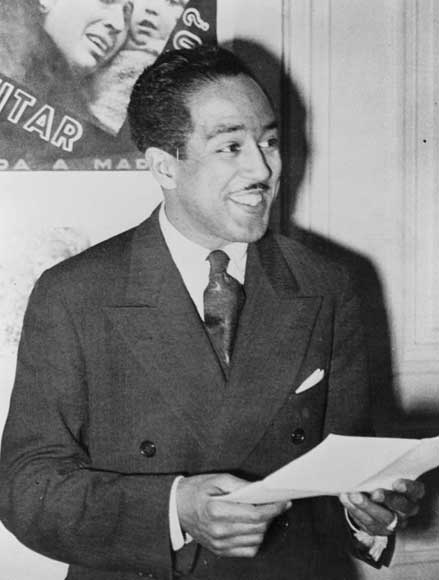‘Momma Welfare Roll’ has no identifiable rhyme scheme in either of the two stanzas that it is composed of. Instead, the poem is written in free verse with the lines flowing from one to the next in a stream of passion. Hence, no shortcomings in poetic craft are perceived by the reader.
Angelou here speaks in the voice of a child watching her mother. As the mother stands with her hands on her hips, her arms form a triangular shape on both sides. Angelou’s construction of such imagery is so evocative that the reader can literally see the scene taking place in front of his or her eyes. This posture of the mother is compared to a semaphore, a system of sending signals from ships over the sea using flags. It is as if seeing her mother in this position sends a signal to the child, telling her in unequivocal terms that her mother is not in a good mood. Such a sight could have quietened a little girl, but our narrator is determined to go on.
The use of phrases such as “pudgy hands” and “layered hips” makes it clear that the mother is on the heavier side. The little girl then states the reason for her mother’s weight – a diet of fatback and lima beans. Fatback is the layer of adipose tissue under the skin of a pig’s back. This is a substitute for the park meat that the mother cannot afford to buy or cook, either for herself or for her children. Both fatback and lima beans figure as the major part of her diet because they are cheaply available. However, they are not healthy by any means, and lead to her having the kind of figure that the child describes.
Crimes have been repeatedly committed against the mother, and as a result, her jowls quiver. The action of quivering implies a mixed mental state of anger, frustration, and sadness – all of which it is not hard to imagine the mother feeling. And what is it that leads to such a mixed mental state? The answer lies in the title of the poem itself, if it is looked at a little closely. For the mother to be on welfare implies an absent father, for if the father were there to bring home a paycheck, then the mother wouldn’t qualify to receive welfare from the United states government. In other words, she is a single mother who is solely responsible for the care of her children, including the narrator.
The mother feels anguish and despair because she knows that her children cannot have the kind of childhood that every child deserves. The description of the games that her children play could also serve as a description of a ghetto, the urban areas where poor African-American families live all across the United States. The houses in ghettos do not have sunlight pouring in through the doorways, as the suburban houses of rich, upper class, white families do. The ghettos are usually so cramped that it is easy to trespass on other people’s property. The use of the word “slick” here is also remarkable. “Slick” means slippery, which has negative connotations. Commentators have said that Angelou is here referring to juvenile delinquency – petty crimes committed by children of families living in low-income areas.
Looking into the background of African-American life in the United States yields other useful information as well. Such information can then lead to a more comprehensive interpretation of ‘Momma Welfare Roll’. For example, it helps to know that until recently, African-American women were, as a rule, confined to low-wage, unskilled jobs that could not provide even one square meal a day for their families. The mother in this poem is well aware of this situation. And this makes her very angry. Hence, she is “too mad to work.” However, the word ‘mad’ has another meaning in this context – that of mental instability (as explained in the summary). In fact, it is possible to link the two meanings of ‘mad’ here by asserting that the latter meaning proceeds as a direct effect of the former. Feminists often comment on how women who refuse to be docile and submissive are often viewed as mentally ill because of the vigorousness of their reactions to the injustices they face on a daily basis.
The third and fourth lines of the second stanza are a bit ambiguous. They could refer simply to wishful thinking on the mother’s part, wherein she dreams that her life has taken a turn for the better and she is able to provide for her family. However, it could also mean that she is looking for a sign from God that will help her keep her faith alive, that will help her live with hope of a better future to come.
The final image of the poem is a very powerful one – that of the mother walking into government offices to demand her welfare. The “den of bureaucrats” reminds one of the Biblical story of Daniel in a lion’s den. At the conclusion of that story, Daniel is saved only through his faith in God. Hence, Angelou could be continuing the theme of faith that she expressed in the last two lines before this one.
The African-American mother of the poem strides into government offices for her “portion”, says Angelou. The word “portion” has the same sense as the word “due”. It is clear that the mother looks upon welfare as her due, as that which is rightfully hers. Perhaps she looks upon welfare as the reparation that must be made to women like her by the dominant white male population of American society for victimising them time and time again. In any case, she defiantly clutches on to the welfare money and walks away with her head held high. Despite her poverty, she is able to maintain a sense of dignity, and that is what makes the mother in the poem an inspiring character.
Dear Readers- If this summary/analysis has helped you, kindly take a little effort to like or +1 this post or both. Make sure you like Beamingnotes Facebook page and subscribe to our mailing list so that we can keep in touch. We’ll keep informing you about stuffs that are really interesting, worth knowing and is important to you.
Some online learning platforms provide certifications, while others are designed to simply grow your skills in your personal and professional life. Including Masterclass and Coursera, here are our recommendations for the best online learning platforms you can sign up for today.
The 7 Best Online Learning Platforms of 2022
- Best Overall: Coursera
- Best for Niche Topics: Udemy
- Best for Creative Fields: Skillshare
- Best for Celebrity Lessons: MasterClass
- Best for STEM: EdX
- Best for Career Building: Udacity
- Best for Data Learning: Pluralsight















